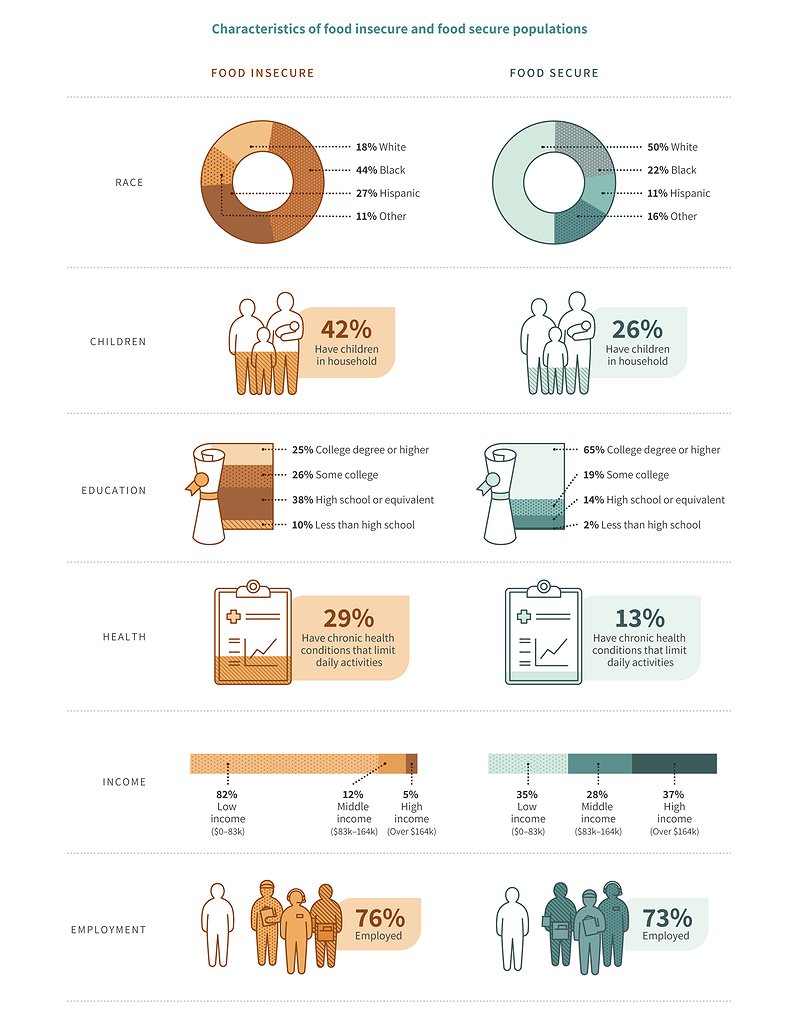Wednesday, December 13, 2023
A challenge existed for Cornerstones: wasted food, tons of it destroyed in the communities the nonprofit organization served, yet people were going home and going to sleep at night hungry.
Staff and supporters of Cornerstones, like Bob Van Hoecke, signature partner, looked at adopting a different perspective.
“It’s not a supply problem, it’s a logistics problem,” Van Hoecke said. “We have more than enough food to feed everybody. We need to get that food into the mouths that need it,” he said.
Supporters and staff at Cornerstones, a nonprofit organization headquartered in Reston, cut the red ribbon to ceremonially mark the start of operations of its FREE from Hunger Center on Monday Nov. 20. The center's 10,000-square-foot warehouse area in Sterling serves as a distribution location for its food hub. To be clear, the center is not a "food pantry."
Partners of Cornerstones may utilize the hub as a resource center to supplement their current food supply and pantry operations. The hub is a fully-equipped warehouse with loading platforms that are easily accessible and ample cooled and uncooled spaces.
“A lot of small pantries don’t have the space to store their donations. What we are talking about here, in my mind, is transformative. We have the ability to evolve how we're going to deal with this problem,” Van Hoecke said. He compared the Free from Hunger Center to the scope and organization of an Amazon warehouse. FREE from Hunger Center is closing the gap between locally wasted food and local food insecurity by redistributing excess food daily.
The Capital Area Food Bank Survey 2023 Hunger Report estimates that 24 percent of the population residing in Fairfax County is experiencing food insecurity. “Food insecurity disproportionately impacts people of color, households with children, and those with lower educational attainment and incomes.” [Source: Capital Food Bank Hunger Report 2023]
Larry Schwartz serves as chair of the Cornerstones Food Hub Task Force. According to Schwartz, the center provides Cornerstones with the physical capacity to expand their food programs in ways they were previously unable to, and it is also an opportunity to simultaneously reduce food waste, food insecurity, and carbon emissions.
“About 40 percent of food produced, processed, and transported in the U.S. is wasted and ends up in our landfills,” according to Rescue Leftover Cuisine, nonprofit food rescue organization operating across the United States.
Marking the milestone, speakers at the event included Kerrie Wilson, Cornerstones CEO. “This is not about interrupting existing supply rescue chains; it’s about figuring out how to be smarter ... How can we change the picture by empowering and resourcing other partners who can get food to people in need? That’s what we want to do and stand behind,” Wilson said.
According to the Capital Food Bank 2023 Study, even among households making $120,000 — the median for a household in the region — food insecurity is affecting one in five families and slightly more than three in five families whose household income is about $55,700 and under. Yet, “employment rates are essentially equal between food insecure and food secure individuals: 76 percent of people facing food insecurity were employed, compared to 73 percent of those who did not experience food insecurity ... High rates of employment suggest that the types of jobs that food insecure individuals have are simply not enabling them to make ends meet.”
“We’re excited to be a part of something that is set up to empower other organizations in their mission to feed the hungry,” said Brody Buhler, who serves as stake president for the Oakton area for The Church of Jesus Christ of Latter-day Saints. “It is astounding that in this population that is so affluent, we are surrounded by people who need food. Cornerstones is helping to fill an urgent need, and it is a remarkable opportunity to be a part of that."
Wilson said they are thrilled with the Sterling location, given that it is well positioned between Fairfax and Loudoun counties. It allows food pantry partners in both counties to easily use the space and work together to find solutions to end hunger in the region. She described how finding the right location for the FREE from Hunger Food Center was a long process.
"We had to find a place that was big enough, provided loading docks, and that could accommodate modifications for the installation of cooling units, as well as enough space in the front of the building for collaboration and community rooms for use by the Dulles Corridor region’s nonprofit community,” Wilson said.
Recognizing all the members of local government, houses of worship, and chambers of commerce in attendance, Sen. Jennifer Boysko, who represents parts of Fairfax and Loudoun, said, “This is the way we work in Northern Virginia — which is collaborative and making sure we’re taking care of one another …. We’re proud that Cornerstones has been a cornerstone of our community.”
